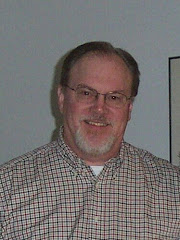I think one of the most frustrating aspects of looking for a new job is answering the questions: “How do I get the attention of the hiring manager?” and “How do I let him know that I have the skills, background and experience he is looking for?”.
This is particularly important if you are in the networking phase of your search and you are writing letters to companies that you know are hiring. It is also vital if you are writing a letter to a company in response to information about a particular position they have that you believe you are qualified for, and are interested in.
So, how do you let the hiring manager know you have the skills, background and experience, and do it so that when he spends 10 – 30 seconds reviewing your letter, he gets an effective snapshot of you? And more important, how can you give him the immediate impression that you are the person for the job?
One very effective way, that has been proven successful, is to include a “Needs/ Contribution Statement”. This is a two-column, one page listing of the typical needs of a particular corporate function, be it Sales & Marketing, Production Management, Human Resources, Finance, Quality Control, or some other business function.
For a Marketing Manager, for instance, the left hand column, labeled “NEEDS” might include the following:
- Effective Leadership
- Strategic Planning
- Business Development
- Sales Growth
- Profitability Improvement
- Cost Management
- Product Innovation
The right hand column, labeled “CONTRIBUTION” includes a short paragraph for each of the NEEDS that describes how you, the candidate, have met the stated needs during your career. This is done with a general statement or the description of a specific achievement or activity that allowed you to meet the stated need.
Here are the CONTRIBUTIONS for the Marketing Manager example we have been discussing:
Effective Leadership
Over 26 years of successful demonstrated leadership and management experience, drawing on strengths in team building, problem solving and strong customer orientation to drive the development and implementation of programs that contribute to corporate growth.
Strategic Planning
Directed the development and supervised the implementation of detailed sales plans and market development plans for several products and product lines which resulted in establishing leadership, both in the total market and in strategic segments.
Business Development
Acquired exclusive rights to the distribution of a strategically important HVAC product, by negotiating a supply agreement with a manufacturer, which allowed participation in a profitable new $2.5 million market niche.
Sales Growth
Drove the effort to increase the number of markets and applications for which key products were sold. As a result, sales grew by more than 19.1% over the previous year.
Profitability Improvement
Drove the effort to increase profitability of key products through increased sales and improved pricing and reduced product costs, resulting in an improvement of more than 28%.
Cost Management
Supervised the activities of a product quality council for a key product which successfully improved the quality of the products while decreasing the cost by more than 4.2%, and reduced the customer complaint frequency to less than 0.1%.
Product Innovation
Directed the development and market introduction of a new product, which redefined acceptable performance in its target market. Sales for this product increased to $5.7 million by the end of the first year, with profits of $1.6 million, or 15.4% of all product line profit.
These needs listed here are targeted for a marketing position. However, there is a similar list of needs that would apply to any function in a company or corporation. If you are an accountant, engineer, human resources professional, or research scientist, or any other professional, there is a list of needs that you can create. You can then list your own contributions that correspond with each listed need, and create a very useful sales tool for your job search.
Remember, the objective is to call attention to your ability to contribute to the growth and success of target companies, and to sell yourself as the best candidate. For this reason, the Needs/ Contribution Statement can be a very effective tool in your search.
Include a Needs/ Contribution Statement with your next networking letters. Try to cater the content of the Needs/ Contribution Statement to the needs of the company you are writing to. You will be pleasantly surprised, I think, by the favorable response you get from prospective employers.













